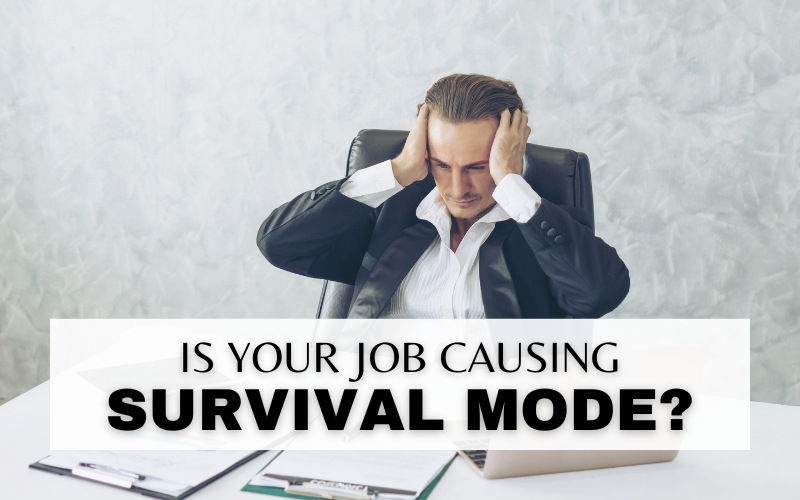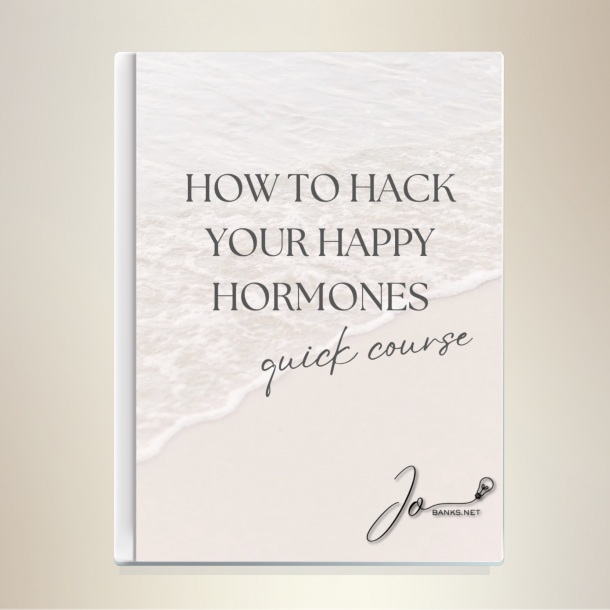We’ve all heard of ‘flight, fight, freeze’, our in-built primal response mechanism that kicks in as a reaction to stressful situations. But many people don’t realise how deep it goes and how often it can get triggered.
If you’ve read my previous articles on Imposter Syndrome and Self-sabotage (you can read them here), you’ll already know the basics of our autonomic nervous system and the stress response. Essentially, it’s an in-built safety tool designed to alert us and keep us safe from potential threats. It dates back to our early ancestors when physical dangers were commonplace.
When we experience stress, our body floods with adrenaline and cortisol to give us a short burst of strength and energy to either run, fight or hide from the threat. As a result, our pre-frontal cortex (the critical thinking part of our brain) shuts down, and the amygdala (responsible for instant action) takes over.
Stress & Illness
Unfortunately, today, our brains can’t distinguish between real-life physical threats and perceived threats, e.g. worrying, overthinking, panicking, and initiates the same hormonal response. Over time, if we keep triggering the stress response, it compromises our nervous system, which can lead to chronic illnesses such as heart disease, diabetes, etc., as well as long-term mental health issues.
Again, this can be traced back to our early ancestors when we were nomads travelling long distances searching for food and water. If we got separated from the tribe, it meant certain death. Therefore, we excreted adrenaline and cortisol continually to reduce the chances of becoming ill until we reached the new camp. When we finally stopped, those hormones would drop, and we could potentially fall sick.
Illness following prolonged stress is just as prevalent today. For example, if we experience stress, anxiety or overwhelm consistently over a protracted time and then take a break (holiday or long weekend), we can become sick as our adrenaline and cortisol levels drop. Again, the chances of this increase when we travel, especially if we fly and are in close proximity to people we wouldn’t usually be around. Has that ever happened to you or someone you know?
Survival mode
If we experience a heightened stress state for a lengthy period, that’s often referred to as being in ‘survival mode’. When this happens, it’s difficult to concentrate and think straight. It feels like we are just ‘going through the motions’. We can experience sadness, low mood, anxiety, have difficulty sleeping and eating. We may find it hard to summon any enthusiasm at work or at home.
Examples of work-based environments that are likely to trigger survival mode include
- Chronic urgency cultures – ever-present deadlines, crisis situations.
- No boundaries – an expectation to work excessive hours, e.g. 10-12+ per day, or being available 24 hours 7 days.
- Bosses unable to regulate their emotions – yelling, shaming, humiliating.
- Constant pressure – pressure-cooker environment, highly target driven with no time for rest/recovery.
- Lack of appreciation – lack of praise or positive feedback.
- Micromanaging – constantly watching employees leading to hyper-vigilance and chronic workplace anxiety.
*Examples from Dr Nicole LePera (Psychologist, author of ‘How to Do the Work.’)
Of course, we all have to burn the midnight oil to get specific projects over the line from time to time. But that’s not what I’m talking about here. I’m referring to environments where the behaviours and expectations listed above are commonplace.
Your Stress Response
We know about flight, fight, freeze, but we can’t literally run out of the door, we definitely can’t fight, and we can’t just stand frozen on the spot. So what do stress response behaviours commonly look like?
Fight:
Aggressive, angry, hostile, looking for an argument, snappy, sarcastic, low tolerance levels, micromanaging, belligerence, etc.
Flight:
Avoiding people, being late for meetings/not turning up on time, physically removing yourself from a situation, needing to get away, cancelling plans/meetings, going off sick, not wanting to go to work, etc.
Freeze:
Pity partying/self-pity, procrastinating (doing less important tasks), physically hiding (in your car, kitchen, restroom, etc.), avoidance behaviours, etc.
Obviously, we all employ these strategies to manage difficult situations from time to time, and you likely use different ones depending on the circumstances. However, it’s important to recognise when these behaviours take over and become your personality. Awareness and knowledge are critical to making long-lasting changes, as is taking responsibility for your thoughts and actions.
I’ve recently seen a significant increase in clients already in or heading towards crisis/survival mode. Their issues may have been there for some time; for others, they may be entirely new. However, no matter the origins, they appear to have been heightened or brought to the forefront by the pandemic.
If there are any topics that you’d like me to cover in upcoming articles, I’d love to hear from you. Please feel free to contact me a jo@jobanks.net.



